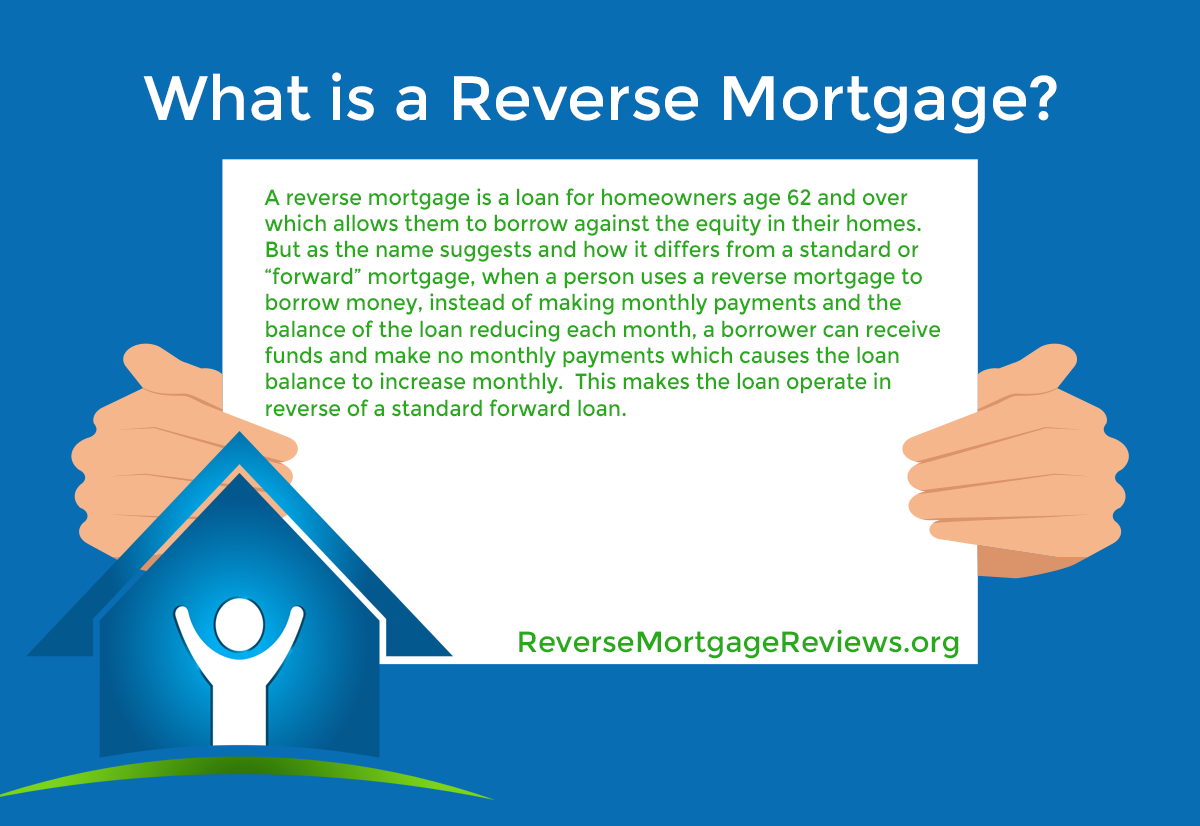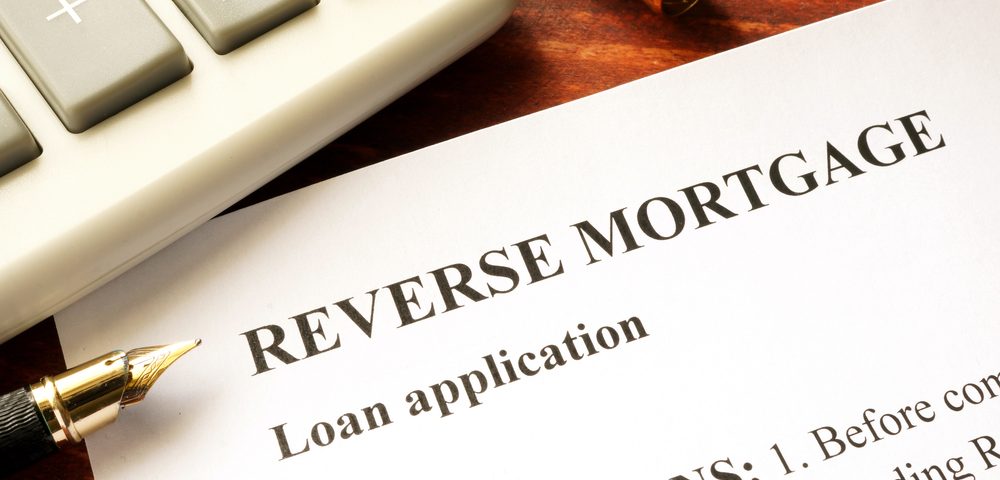The Benefits of Choosing to Purchase Reverse Mortgage for Your Home
Unlock Financial Flexibility: Your Guide to Investing In a Reverse Home Loan
Understanding the complexities of reverse home mortgages is essential for house owners aged 62 and older seeking monetary flexibility. This one-of-a-kind economic instrument enables elders to take advantage of their home equity, changing it right into accessible cash money for various requirements, from health care to way of living improvements. Browsing the eligibility requirements, prices, and advantages can be complicated. As you consider this choice, it is crucial to grasp not only how it works but also the implications it might carry your economic future. What are the key factors you should weigh prior to making such an impactful choice?
What Is a Reverse Mortgage?

The essential appeal of a reverse home loan depends on its potential to enhance economic versatility throughout retirement. Home owners can utilize the funds for numerous functions, consisting of medical expenditures, home enhancements, or daily living prices, therefore offering a safety and security net during a critical stage of life.
It is important to recognize that while a reverse mortgage enables raised cash money flow, it also reduces the equity in the home gradually. As passion accumulates on the exceptional car loan equilibrium, it is important for prospective consumers to thoroughly consider their long-lasting monetary strategies. Consulting with an economic expert or a reverse home mortgage specialist can provide valuable insights into whether this option aligns with an individual's financial objectives and circumstances.
Eligibility Needs
Recognizing the qualification needs for a reverse home mortgage is crucial for home owners considering this economic alternative. To qualify, applicants should be at least 62 years of ages, as this age standard enables senior citizens to gain access to home equity without monthly mortgage settlements. In addition, the house owner needs to occupy the residence as their primary residence, which can consist of single-family homes, particular condos, and produced homes meeting specific standards.
Equity in the home is one more necessary demand; property owners generally require to have a substantial amount of equity, which can be identified through an assessment. The amount of equity offered will directly affect the reverse home loan amount. Candidates have to demonstrate the capacity to preserve the home, including covering residential or commercial property taxes, home owners insurance coverage, and upkeep expenses, ensuring the building remains in excellent condition.
In addition, potential borrowers must go through an economic evaluation to examine their income, credit rating, and overall financial circumstance. This assessment assists lending institutions identify the candidate's ability to satisfy recurring obligations connected to the property. Satisfying these needs is essential for protecting a reverse home news mortgage and guaranteeing a smooth monetary change.
Benefits of Reverse Home Mortgages
Various benefits make reverse home mortgages an attractive option for senior citizens aiming to enhance their financial versatility. purchase reverse mortgage. Among the key benefits is the ability to transform home equity right into cash without the need for regular monthly home mortgage settlements. This feature enables elders to accessibility funds for various needs, such as medical expenses, home improvements, or daily living costs, thereby reducing financial tension
Furthermore, reverse home loans provide a safeguard; elders can proceed to reside in their homes for as long as they meet the lending requirements, cultivating security throughout retirement. The proceeds from a reverse home mortgage can likewise be utilized to delay Social Protection advantages, potentially causing higher payouts later.
Moreover, reverse mortgages are non-recourse financings, indicating that borrowers will never owe greater than the home's worth at the time of sale, protecting them and their beneficiaries from monetary liability. The funds gotten from a reverse mortgage why not check here are normally tax-free, adding one more layer of financial alleviation. Overall, these advantages position reverse home loans as a practical option for elders seeking to boost their financial scenario while preserving their valued home environment.

Fees and costs Included
When taking into consideration a reverse mortgage, it's necessary to recognize the different prices and charges that can influence the total financial picture. Comprehending these costs is critical for making an informed decision regarding whether this monetary item is appropriate for you.
Among the primary costs associated with a reverse home loan is the origination charge, which can differ by loan provider yet generally ranges from 0.5% to 2% of the home's appraised value. Furthermore, house owners need to prepare for closing costs, which may consist of title insurance, appraisal fees, and debt record costs, typically amounting to several thousand dollars.
An additional substantial expense is home mortgage insurance costs (MIP), which protect the loan provider against losses. This fee is typically 2% of the home's value at closing, with an ongoing annual costs of 0.5% of the remaining lending balance.
Lastly, it is essential to think about continuous expenses, such as real estate tax, homeowner's insurance, and upkeep, as the borrower continues to be liable for these expenditures. By very carefully examining these expenses and fees, home owners can much better analyze the economic implications of pursuing a reverse home mortgage.
Steps to Get Going
Starting with a reverse home loan involves numerous crucial steps that can help simplify the procedure and ensure you make educated decisions. First, analyze your monetary situation and establish if a reverse home mortgage aligns with your lasting goals. This consists of evaluating your home equity, existing debts, and the need for additional earnings.
Following, research study numerous lenders and their offerings. Try to find reliable organizations with positive testimonials, transparent charge frameworks, and competitive rate of interest. It's vital to contrast problems and terms to find the very best fit for your requirements.
After choosing a lending institution, you'll require to finish an in-depth application procedure, which commonly requires documentation of income, assets, and home details. Take part in a counseling session with a HUD-approved counselor, who will provide insights right into the effects and duties Full Report of a reverse home mortgage.
Verdict
In final thought, reverse mortgages provide a practical alternative for senior citizens seeking to improve their financial security during retired life. By converting home equity right into easily accessible funds, homeowners aged 62 and older can attend to various economic needs without the stress of monthly payments.
Recognizing the ins and outs of reverse mortgages is vital for homeowners aged 62 and older seeking economic freedom.A reverse home mortgage is a financial product made mainly for house owners aged 62 and older, allowing them to transform a portion of their home equity right into cash money - purchase reverse mortgage. Consulting with a reverse home loan or an economic advisor expert can provide important understandings right into whether this option straightens with an individual's monetary objectives and conditions
Additionally, reverse home loans are non-recourse lendings, implying that consumers will never owe even more than the home's value at the time of sale, securing them and their heirs from monetary responsibility. In general, these benefits placement reverse home mortgages as a practical service for elders seeking to improve their financial circumstance while maintaining their cherished home setting.